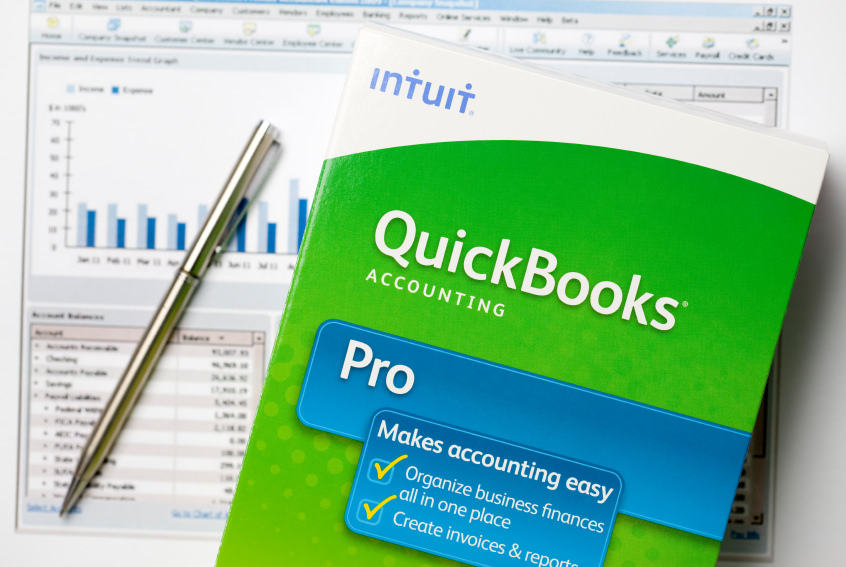Category: Finance
ContentRally is a leading source of reliable news and trending topics on Finance. Get hard-to-find insights and advice on Finance from industry-specific leaders.

How New User Do Online Registration at LIC Portal
Life Insurance Corporation of India has been one of the most trusted names since its incorporation in the year 1956. This state-owned insurance company is also the largest insurance company in India- have been by the years and still gaining customers patronage with quality products and ease and simplicity of operations. To bring about a simpler access to their policies by the customers, LIC has recently introduced LIC e-Services which would enable LIC customers to get an access to their policies and every other thing related to it get done online such as paying monthly premiums, keeping track of the policy status, keeping track of premium dues and more such stuff online without having to approach any branch office. It is to the utmost benefit of the customer that they can have a transparent view of the policies and plans that they have opted for and get things done with just a click avoiding long queues in the branch office. While availing e-Services might seem like an amazing idea, some people are surely yet to figure out how to get themselves availing these services. If you be among them, worry not. Here we have for you a complete guideline on what exactly LIC e-Services are like and how to get yourself registered on the LIC login portal if you are a new user. All you have to do is to stick to the article until the end. How New User Do Online Registration at LIC Portal: What is LIC e-Services? LIC e-Services is the recently launched online service provided by LIC to its customers. LIC with integration with all the latest digital initiatives comes with its own e-Services to enable wider access to unlimited policy-related information to its customer with utmost simplicity and ease. There is a myriad facility one can derive from availing these e-Services. These benefits include: Online Payment Facility Policy Status Bonus Status Loan Status Claim Status Premium Due Calendar Revival Quotations Premium Paid Certificate Claim History Policy Bond Various devices and online forms available Locators and FAQs Who Are Eligible For Availing LIC e-Services? Of course, anyone who is a policyholder with LIC can avail the benefits of LIC e-Services. For the same one has to register themselves at the online portal. The ones who have already had their registrations done can just simply register the policies held by them in the portal to get all the information and updates on the respective policies. How To Register For LIC e-Services? Now, that you have already had an idea about LIC e-Services and the benefits that you can avail from it, you need to know how to register yourself at the portal for availing the same. The process is rather simple, definitely for the ones who have already had their registrations done and also for the new users who are yet to get themselves and their policies registered. If you are already registered at the portal, all you need to do is click on e-Services. You will find the button somewhere to the right of the official LIC webpage. Click on Registered User button and log in with your User ID and password. Then you need to fill-up the form provided so as to register your policies at the portal. Take a print out of the form, sign it and upload the scanned copy of the form. Also upload the scanned image your Aadhaar Card, PAN card or Passport. The officials would take some time to verify the same and after the verification process has been completed you will receive an SMS or an email stating that you are prepared to use the e-Services. For the Ones Not Yet Registered at the Online LIC Portal: In case you be among the ones who have not registered already at the Online LIC portal, go through the registration process which is very simple to get through. All you have to do is to click on the New User button on the right of the official LIC web page and select your User ID and password. On the completion of the simple process, you are a registered portal user. You need to register your policies in the portal and therefore all you need to do is to click on e-Services and log in with your User ID and password. For the registration of your policies, you need to fill in the form provided with all the necessary details. Print the form, put down your signature and upload the scanned image of the same. Note that the size should not be below 100 KB. Also, you need to upload the scanned image of the Aadhaar Card or Passport or PAN card or any other equivalent document that works as your official ID proof. Once you are done with the process you need to leave it to the officials to verify it. Once your application is duly verified, you will receive an email or an SMS dating that you are good to go with availing the e-Services at the LIC portal. Read More : Get A Return On Investment With Your SEO. Six Low-Investment Business Ideas You Can Start Today
READ MOREDetails
Easy Ways To Make Free Money Without Doing Much
Being in need of extra cash and not having the time to do something about it can put you in a pretty tough position. Luckily there are some things you can do to make free money without putting in much effort as well as save free money without even knowing it. Check out the tips below to grab that extras cash ASAP. Easy Ways To Make Free Money Without Doing Much: Fill out online surveys There are tons of websites out there that will pay you to take surveys or answer just a couple of questions. Some of these websites include Swagbucks Toluna Vivatic MySurvey YouGov Panel Opinion These surveys usually don’t take too long and definitely don’t take too much brainpower to complete. Check out one of these sites if you’re bored and make a few extra bucks in the process Sell your old clothes Everyone has clothes still hanging in their closet or folded in their drawers that they either forgot they had or haven’t worn in years. If this is the case, sell them! You can either physically bring them to a spot like Plato’s Closet where they’ll assess the value of your clothes or then hand you cash, or you can post them online. One great online clothing selling platform is Poshmark. All you have to do is upload a picture of your clothing item, answer a few questions, set a price, and wait for it to sell. Once it’s sold, Poshmark will provide you with a pre-paid shipping label so that all you have to do is pack the box and send it on its way. Sell your things So maybe you don’t have a ton of clothes you’re willing to sell. In that case, check out some of the old stuff you have hiding away in your basement or attic. As they say, one mans garbage is another man's treasure. Check out sites like eBay or LetGo for a platform with a huge audience. Sell your old gift cards Sites like GiftCash make it easy to check the balance of your gift cards and then sell them on their site. You can check any gift card balance from Abercrombie to a second cup gift card balance. This is a great way to make some quick cash if you’re not going to use the gift cards. Stop buying coffee If you’re tight for cash, you need to make those trips to Dunkin or Starbucks a treat rather than a necessity. Not that coffee is particularly expensive, but if it’s an everyday expense, it’s definitely adding up over time. Try cutting this down or out completely and watch your bank account grow slowly but surely. Cut back on subscriptions There’s going to be some things where you’re just not willing to budge, but do you really need Netflix, Hulu, and HBOGO? Maybe it’s time to pick and choose which subscriptions are really a priority for you. Or maybe you should stop watching TV altogether and get another job. Write online This might not be a gig for everyone, but you have any ability to write, it’s not too tough to find a job online. Websites like Upwork and Freelancer offer platforms for you to advertise yourself as a blog writer, article writer, or any other professional talents you may have. You can sell photography, design websites, or just about anything else you can think of through these sites, and get paid for it! When you’re in a pinch for free money, things can get pretty frustrating. No matter what though, there’s always something you can do about it. Even if you’re not working some fancy job, for the time being, there are totally ways to get that extra cash into your pocket. Sometimes you just have to think outside the box in order for it to work. Read More : Top Apps to Help You Manage Your Money. Substantial Tips On How To Invest Your Money Responsibly.
READ MOREDetails
The Best Stocks to Buy Now That Will Pay Big Later
An astounding 90-95% of day traders lose money and fail in the stock market. That's a pretty scary statistic for someone wanting to get involved in day trading. Learning what the best stocks to buy now is going to save your bank account as well as lower your stress levels. Buying into stocks is both nerve-wracking and exciting at the same time, and can either make you jump with joy or crumble into misery. Making the right moves is going to better your chances of being in the top 5% of successful traders. The biggest problem is, with over 1.46 billion shares a day, you could go cross-eyed when trying to figure out where to start. How do you know which are the best stocks to buy now? Have no fear, we have constructed a list of the best stocks to buy now, so you do not have to stress about that part. Read on to find them out. Amazon (AMZN) : The fact that Amazon has its hands in so many cookie jars, makes its future look unfathomably large. There is Amazon Prime, Cloud, Alexa, annual subscriptions and so on. In fact, more than 100 million people subscribe to Amazon with a $99 subscription fee every year. Apple (AAPL) : A lot of people seem to have a negative opinion about Apple products, say what you want but it seems like their stocks are going to continue to rise. The iPhone just keeps getting better and better, plus their newer products such as the Apple Watch or the Apple tv are just too awesome to ignore. ResMed Inc. (RMD) : ResMed creates medical equipment and cloud-based medical software for medical professionals to treat sleep apnea and chronic obstructive pulmonary disease (COPD). So far they have treated 2 million patients daily and helped those patients reduce healthcare costs by minimizing the chronic disease effects. With opportunities for growth located in India, China, Eastern Europe, and Latin America, it seems that they will be busy on the incline for at least the next decade. Alphabet (GOOG) : Arguably the first investor into artificial intelligence in comparison to its tech competitors. From helping Android users to now operating their own AI "Google Home," it seems like they are going to be neverending in their development of new and exciting AI-based software. Laureate Education (LAUR) : Laureate Education is the biggest network in the for-profit high-quality educational institutions. This stock has already climbed massively and analysts say that it is just getting started. Owning over 200 programs and operating in over 29 countries and counting, this stock is destined to climb high. Invest now while the initial buy-in is still low. More About The Best Stocks To Buy Now : It can be overwhelming knowing where to start, especially when investing in your first stocks. Deciding between NASDAQ and the top Japan ETFs can be difficult. Investing in any of the above-mentioned stocks will gear you towards success in your trading career. Feel free to contact us at any time with any questions and share your comments below. Read Also : How To Start Trading On The Stock Market And Profit? Buying Stocks For Beginners: A Guide
READ MOREDetails
Substantial Tips On How To Invest Your Money Responsibly
You can do a lot of things with your hard-earned cash. For instance, you could purchase expensive smartphones or even your dream car. And that is not all. Apart from buying gadgets, you can choose to visit various destinations around the world. On the flip side, you can also be practical and invest your funds in areas that it will work on your behalf. Presented below are substantial tips on how to invest your money responsibly. Real Estate : The real estate is one of the most profitable fields that you could venture into if capital is not the issue. The income is predictable and quick to collect to your advantage. If you construct rental units then you will know how much you can expect at the end of the month unlike with other businesses where the fluctuations in prices affect income. With real estate the variations will be to your advantage as the value for your property will keep rising. Stock Markets : Next, you can invest your wealth in the stock market with huge pharmaceutical companies. It's true that such firms are more established and are less riskier to invest in compared to other businesses. Before you get into biotech investing you should ensure that the aims of the firm you wish to invest in are achievable. Have a look at the top biotech businesses to make sure that you work with a company with a proven track record of success. Bonds : Long term or short term bonds are investment options managed by an expert financial advisor. It's true that they are stable and offer investors an opportunity to earn lots of profit. You will earn monthly depending on the current market inconsistencies. Go for short-term bonds if you want back your cash plus the profits fast. Peer to peer lending : You can join the peer to peer lending clubs to save some of your cash. These groups can loan you money like the banks without asking for lots of interest. It will be comforting knowing that you are lending people you know huge sums of money. Some people prefer investing in peer to peer lending platforms than stocks because its easy to start, low-interest rates and you don't need lots of cash to begin. Highly-priced Metals : Apart from the options mentioned above, you can decide to spend your money in commodities like valuable metals. The value of gold, silver, and other valuable metals doesn't fluctuate much like other products meaning that after purchasing them you can wait to sell them at your local jeweler when their prices rise. When purchasing precious metals like gold you must sidestep high premium charges otherwise you won't make handsome profits from your investment. Many other investment options that can make you lots of cash are available. This post was just highlighted a few of them. You should research more about the others to discover those that are ideal for your case. If you do a proper investigation then, you will make sound options when investing your hard-acquired cash. Read Also : Is Property Investment Still A Good Way To Make Money? Six Low-Investment Business Ideas You Can Start Today Investors Agree: Gold And Silver Is The Way To Go
READ MOREDetails
These Small Changes Will Change Your Finances For The Better
It’s easy to think only the big things matter when you’re looking at your finances. Your choice of mortgage and how much student debt you carry tie up your money in major ways, after all. Their effects can be so significant that many people assume they can’t make any positive changes to their finances until they can renegotiate their mortgage or pay off their debt. But these people are forgetting the lesson of the butterfly effect. Though the flapping of a butterfly’s wings may seem insignificant, the air it displaces can set off a chain reaction that causes a hurricane half-way around the world. If you’re ready to start improving your finances, don’t let the size fool you. You don’t have to wait until you can sort out the big things in your ledger. Even small financial choices can have a huge impact on your life. Take a look at this list of simple and small changes you can make to help bring order to your financial house. Shop for groceries like a pro : Your weekly trip down the aisles can lead to considerable savings if you’re organized. Maximize your savings at the supermarket by including these techniques every time you shop: Make a list: Research from the University of Pennsylvania shows shoppers who use lists can save 23 percent on their grocery bills. How? Those that stick to a list are less likely to make impulse purchases that bloat their bills. Shop generic: Recognizable brands often cost more money for no other reason than the label. Compare prices of generic items and make the switch. Use coupons: Coupons strike serious cash off certain items, especially when you use them on top of existing sales. Certain retailers allow you to stack them, so you can redeem more than one coupon on a single item and double, triple, or quadruple your savings. Price match: When half of your list is on sale at one grocery store, and the other half is on sale at another, you can cash in on both sets of promotions by shopping with a retailer that price matches competitor’s flyers. Though it will take some time at the till this strategy will save you the cost of driving around town to cash in on deals. Bank differently : How you deposit, withdraw, save, and invest can affect what’s sitting in your accounts. Slash unnecessary charges and drama from your life by adopting these new banking habits: Open a no-fee checking account: Most banks charge you monthly fees if you can’t keep a minimum balance. You can skip these charges by transferring your funds to a bank that doesn’t place these restrictions on your accounts. Stop using ATMs: Depending on where you live, you can spend $5 for the privilege of using an ATM. Let this post help you cut these charges out of your life by withdrawing from your bank directly. Search out online solutions: Traditional banks often have complex barriers that delay or prevent you from getting a loan you need to pay a bill, causing you to miss deadlines and pay more in interest. Direct cash advance lenders like MoneyKeyaren’t bound by the same red tape in most US states, so getting a payday loan from MoneyKey.com is simple by comparison. They’ve eliminated many of the complexities bogging down conventional assistance, so you can get a necessary cash advance quickly when time is of the essence. Shop with cash when you can: While mobile payments are more convenient, shopping with digital forms of cash can cause you to spend more. Try shopping with cash as much as possible, leaving credit cards and other e-payments for unavoidable purchases. Though few of these tips are impressive on their own, their true significance lies in their cumulative effects. Make enough little changes for long enough, and your financial habits can result in considerable savings. Read Also : Is Fixed Deposit The Right Place To Invest Post-Demonetization? 5 Smart Ways To Boost Your Credit Score Dealing With A Debt Relief Officer For A Better Assistance
READ MOREDetails
Buying Stocks for Beginners: A Guide
Investing your money wisely is one of the best things you can do for yourself and your future. It's never too early to start investing your money so that it will grow. Buying stocks for beginners can be scary, but there is plenty of guidance available. This is especially true if you are looking to buy US stocks outside of the United States, in which case you´ll need the help of a broker to access those markets. If you are new to the world of stocks and investing, you will undoubtedly have lots of questions and will need to take the time to learn some basic concepts. Buying Stocks for Beginners: A Guide Check out this guide to buying stocks for beginners. Why Invest? Investing is a way to make your money work for you. Rather than sitting idly in the bank, investing your money in stocks is one way to help achieve your financial goals. Though the stock market may have its ups and downs, it has historically averaged a 9% return on investments. How Much Should You Invest? How much to invest depends on your goals. This is something to discuss with your financial advisor or brokerage firm, but a good rule of thumb is to contribute about 10% of your income to your investment portfolio. Basic Types of Investments: There are many options to invest in, but the basic types of investments include Stocks, Bonds, Cash, Mutual Funds and ETFs. We recommend you consult with a reputable financial advisor for suggestions on how best to distribute your funds. How you choose to invest will boil down to how conservative or aggressive you feel most comfortable regarding your finances. For more information on investments be sure to check out thinkorswim vs tastyworks. Investing Actively or Passively: Active investing means selecting investments that are actively managed by professionals, with a goal of beating the market and achieving greater returns. Whereas passive investing is to simply try to match the market's performance. The choice of whether to invest actively or passively essentially boils down to how much time you want to spend studying the market. Active investing typically requires a potential investor to do extensive research into individual stocks. Choosing the Right Stocks to Invest In: For a beginner, it might be wise to consider certain types of stocks that are good long-term investments. It's important to take your time, learn the basics, and to research into the ways stocks are valued. Another thing to educate yourself on is the difference between investing and speculating. While investing is typically designed for sustained returns over the long haul, speculating is a dangerous way of chasing fast money. Getting Started: Once you understand the basics of buying stocks, you'll want to open a brokerage account. Shop around and study the various brokerages to learn about their services and fees. As a beginner, you will want to find a brokerage with features to guide you through the stock selection process. Buying stocks for beginners can be an exciting process, and watching the return on investment as your money begins to grow can be a source of great satisfaction. Click here to see more great business articles. Read Also : How To Start Trading On The Stock Market And Profit? Investors Agree: Gold And Silver Is The Way To Go
READ MOREDetails
Small Business Guide to Private Health Insurance Exchanges
When it comes to building a business, health insurance is often a concern. Entrepreneurs who venture off on their own sometimes leave a great health insurance plan behind when they do so. For many aspiring entrepreneurs, this risk is one of the main limitations that prevent them from pursuing their passion. There are complexities that small business owners with employees will face that will never be an issue for one-person organizations. Figuring out how to offer health insurance, and what’s required in this politically tumultuous time, can be confusing and overwhelming. That’s why so many small business owners are using a broker and a private health exchange. Using a Broker : First of all, let’s look at why so many small businesses choose to use a broker when it comes to health insurance. Researching options and trying to understand the insurance industry jargon can be an absolute nightmare. As a business owner, you wouldn’t tell clients seeking your expertise to handle their business themselves. People come to you because you’re an expert in your field. Why wouldn’t you do the same? A broker can do the research, and understand what is being offered. They can translate the industry language into something you can understand and process, and make recommendations based on your needs. They save you time and money, not only finding something that works for you but helping with the enrolment process. In a nutshell, health insurance procuration is something you can delegate while you focus on operating your business. What is a Private Exchange? When told to consider a private exchange program, small business owners often ask the same question: “how does a private exchange work?” Private exchanges are a flexible approach to group health insurance that allows employees to pick and choose aspects from various health plans to fit the allocated budget. Employers and small business owners get control over their contribution and, with a broker, find something that fits their budget upfront. Rather than being presented with one option, employees can choose from a wider range of plans. So if Jim in sales has different health coverage needs than Pam in reception, they can choose different plans that suit their individual requirements. If their needs extend beyond what you have budgeted for, they simply pay the difference in premiums themselves. When you use a broker to procure health insurance through a private exchange, you don’t have to deal with multiple bills from multiple providers. Rather, everything is consolidated and billed to you directly through the broker on one convenient invoice. Political and Business Considerations : There has been a lot of back and forth about the Affordable Care Act (ACA) and President Trump’s proposed redactions and changes. Many of these changes won’t take place until late this year or early 2019. For now, the same Essential Health Benefits (EHBs) apply. These benefits include things like emergency services, ambulatory care, prescription drugs, prenatal and postnatal care, etc. While it is possible that changes are coming in the near future, for now, it is best to go with what you know. Working with a professional broker can help you navigate the murky waters and better explain how proposed changes will impact your small business, what you can do to prepare, and how things will work in the meantime. As a small business operator, a lawsuit resulting from not properly adhering to what is expected of you regarding insurance can break your business. Unlike other options, like Professional Employer Organizations (PEOs) you still have complete control over other aspects of your business with a private exchange. Private exchanges are not only convenient for you and your employees but help you cover your assets. Read Also: How To Get Low-Cost Life Insurance For Seniors Tips To Lower Your Insurance Costs Fred Loya Insurance Company
READ MOREDetails
Are Debt Consolidation Loans Recommended for Credit Card Consolidation
Debt consolidation has become a very common practice in the modern world. Financial advisers encourage people to take this approach especially if you want to become debt-free. Always go for a credit card loan during emergencies and look for means and ways of clearing it fast. Credit cards loans only assist you because you get them very fast. However, they come with more disadvantages the benefits to the borrower. At this point, consolidating all your credit card loans into one big but cheaper loan becomes a necessity. Importance of Debt Consolidation: Debt consolidation loan refers to taking out a personal loan that is equivalent to the sum you owe on your high-interest credit cards. After you use the loan to pay off the credit card, you must now pay back the lender that extend the loan to you. If you can find a personal loan with a low-interest rate, you will be saving money in repaying your credit card debt. Lower interest rate means that you can pay off your credit card debt and become debt-free faster. How Debt Consolidation Works: Many online personal loan lenders offer a loan amount of up to $35,000 to more than $100,000. The loan amount that you get approved will depend on whether you have the income to pay back. Once you are approved of the loan, they may send you a check or direct deposit the amount into your bank. You can then use the funds to pay back the credit card debt yourself. Some lenders can help you to submit the payment to your preferred credit card companies. In this case, you have to tell them what lenders to submit the payment and the amount to submit for each lender. Read More: Top 5 Types Of Startup Business Loans Other benefits of Debt Consolidation: Now that you can afford to pay back the loan, you must be diligent in making the repayment every month. In this way, your credit score will be build-up by the time you finish repaying the loan. You should check your credit report prior to applying for a personal loan use for the purpose of debt consolidation. The debt consolidation loan could also help to extend your loan term and reduce the monthly payment. Making a minimum payment on the loan means that you are only paying the interest rate. The actual amount you owe will remain the same in this case. This option is ideal for people who have limited income and need help in repaying the loan. The lender will review your credit profile and financial documents when deciding whether to approve the loan. It is easy to get a low-interest debt consolidation loan when you have a good/excellent credit score. In addition, you also must have a low outstanding debt to qualify for a low-interest rate. The length of repayment will also affect the interest rate. Longer repayment term causes you to pay a higher interest rate.A debt consolidation loan can consolidate your credit card debts into a single monthly payment. Before that, you have to remember different due dates from different credit cards to make sure you promptly submit the payment to the credit card company. It is easy to miss a payment when you have multiple due dates to remember. Now, you just have one repayment date to remember. This ensures that you will always remember to make the repayment on time. Read More: How To Get An Auto Loan At A Low-Interest Rate Conclusion: It’s a nice move to consolidate all your credit cards debts into a single but less expensive loan. You will have a peace of mind from the single installment and reduced interest rates. You will also rebuild your credit history as you continue repaying the loan as long as you make timely monthly installments. Read More: Best Home Buying Tips For First Time Buyers Oh, Crop! Killer E-Commerce Mistakes You Need To Conquer Questions To Ask When Working With A Web Developer
READ MOREDetails
Investors Agree: Gold And Silver Is The Way To Go
Ever since precious metals were discovered, they were used as currency. Gold and silver, in particular, have always been the most popular form of currency throughout the world, and, while one country may use francs while another may use pounds, both currencies are backed up by gold and silver. Gold and silver are always a sure bet in an unpredictable market, as they’re both stable, virtually impervious to the unrest in the world’s conventional markets. The value of a country's currency is liable to change drastically, but the gold that backs in it up – even here in Canada – remains valuable and more stable. There are options when you decide to invest in gold and silver, but one thing you might consider doing to get started is getting an Exchange-Traded Fund (ETF). The main attraction to ETFs is that they are a safe bet, with very little risk, so as a long-term investment, you can pretty much ensure at least some sort of profit. For riskier investors, you can invest in an actual gold or silver mining company – the possible reward here is great, but it comes with a little more of a risk. Many of these companies are unable to mine the precious metals that they are looking for; however, if they do literally strike gold, so did you. Lastly – and this is an option recommended by a number of top investors – you can always just buy physical gold or silver bars. This is always a solid investment in an unpredictable market. Whether you’ve been stocking your portfolio for years with precious metals, or you’ve just started learning about investing in gold or silver to increase your wealth, the first thing to do is speak with an expert, whether that’s a financial advisor or an accredited gold dealer. Gold and silver generally come in the forms of bars or coins, and you can find an accredited dealer in Canada by looking online and checking reviews – just make sure that you go to an authorized dealer. Also remember that there may be other factors involved in buying the precious metals, for example, the fact that coins could have historical value as well as the value of the actual gold or silver in the coin. Also, gold and silver bars are large, and storing them can get quite expensive depending on how much space you need. Many people forget to incorporate these secondary costs to investing. Don't make that mistake. While gold is stable, there are still important things to know about investing in precious metals. It can still be a risky business, if you buy at the wrong time – albeit, the risk here is far less severe than the risk in traditional investments. Just like stocks and bonds, the value of gold goes up and down with the economy, but unlike stocks, those swings aren’t quite as large. While generally a safe bet, do your research to know whether you want to buy right now or hold off for a little bit. In general, gold and silver increase with value, so if you're not sure, buy! Read More: Get A Return On Investment With Your SEO Why Invest In Belleek Pottery? Top Apps To Help You Manage Your Money Oh, Crop! Killer E-Commerce Mistakes You Need To Conquer What You Need To Be A Successful Entrepreneur
READ MOREDetails
5 Perks of Having QuickBooks Pro for Your Business
QuickBooks main function is to simplify accounting in various aspects of a business. Intuit has released various versions of QuickBooks, so that different enterprise can select different versions of QuickBooks for their needs and requirements. QuickBooks Pro is one of the versions of QuickBooks software about which we are going to talk about today. This QuickBooks version is specifically designed for small companies. The features provided by QuickBooks can handle all the accounting functions including accounts receivable, accounts payable, credit card management, and financial reporting. The software is available for $219.95 in the US, this is great because earlier it used to cost $299.95 and now it is even more value for money. Cash Management- The software perfectly manages the cash flow and budget for small businesses. You can input the due dates for different kind of payments and the billing information can be added along with that. You can get printed checks directly through your QuickBooks software. For future audits you don’t have to manually record any transaction because all transactions are recorded automatically, this eliminates the need for paperwork. Expense Billing- In any type of business there various miscellaneous expenses like small purchases, meals, business travels, etc. These expenses may or may not be included in the client’s total bill, but because of their small amounts, they are disregarded and in the end, it is billed to the client only. In QuickBooks, you can maintain such record of all the expense and later go to them at the time of the billing. This will save some of the expenses for the clients and they won’t be any quarrel and even if there is, you would have a complete record which you show them. You can directly manage payrolls and taxes from the software itself. Invoices- Wouldn’t it be great, if the software does work and saves up a whole lot of labor and that too without any error that may happen in the case of human involvement? Well, QuickBooks does exactly that, it automatically tracks the sales and creates receipts and invoices any time you want, like if you have to send an invoice to the customer. The type of feature is very helpful if someone is buying the QuickBooks for retail business. You can even subscribe to QuickBooks checkbook solution, this provides with the ability to scan and deposit the checks into the program without manually entering the data. Reporting- Through QuickBooks, you can create various types of financial reports. These include yearly incomes, trends, expenses, and other documents. You can even create an excel sheet, in case you have to send the data to the client. Simple user interface- This one is obvious, the QuickBooks software makes every accounting activities very easy to complete and even does some of the work for you. There are various tutorials also on YouTube and on Intuit’s website, with their help you can explore all the useful set of features that QuickBooks provide. Planning- QuickBooks is advance planning too also for adding accounting data and also for planning your sales data, bills and other long term operations which your company performs. QuickBooks Pro can even produce tailored reports for your clients, managers, etc. which can provide you an informed view for your future planning decisions. Business Positions- with the QuickBooks Pro, you can generate a complete report of your company’s profit and loss with the profit and loss statement. You can also find out your top customer list at the end of the financial year and even after 6 months. Read More: How To Get Product Ideas For Your Ecommerce Business How To Get Low Cost Life Insurance For Seniors 10 Tips To Design The Perfect Business Card What You Need To Be A Successful Entrepreneur
READ MOREDetails
Is Fixed Deposit the Right Place to Invest Post-Demonetization?
Fixed deposit is an investment option which is balanced with both: Returns and Risks. Although the investment is the most preferred option; these day’s people are seen to be disappointed with its returns. Perhaps the reason behind this disappointment can be the drop down of interest rates post-demonetization. Fixed deposit (FD) is always considered as a much favourable choice than savings since the returns earned are comparatively high. But as the rates have dropped down, the investors might have to think about parking their funds in savings rather than investing it. Before you change your mind, it is important to consider other financial institutions too, who offer fixed deposit investments. Banks are not the only ones providing the fixed deposit service; there are highly reputed NBFCs which are providing it too. The FD offered by the NBFCs are called as company fixed deposit. Despite the repo rate cut down, NBFCs still manage to offer best-fixed deposit rates which are higher than banks. Yes! You read it right, you can earn higher returns by investing in company’s fixed deposit, plus there are many schemes and facilities you can gain from. Owing to the favourable fixed deposit conditions, you no longer need to resort to less interest offering saving options. Here are some things that you should know about fixed deposit investments: 1. Secured Investment: As fixed deposit does not depend upon the market conditions, the interest offered on it is fixed throughout the loan tenure. This makes the investment a safe option to allocate your funds in. Whereas, the returns offered on the high-risk investments depends upon the market conditions which makes them risky. There is no such guarantee that you might always earn higher returns as there can be times when you might face a loss. This is not the case with fixed deposit. Besides, there are some NBFCs who are awarded ICRA’s MAAA rating and CRISIL’s FAAA rating which means, they are reliable as well as safe to invest in. 2. Flexibility: With a safe investment option, fixed deposit also provides flexibility with its tenure. You are free to choose any tenure period ranging from one year to five years. Also, you can reinvest in FD if your account matures. 3. Interest rates: The interest rate is a very important factor to consider when it comes to investments, as it decides the returns you will be earning over the fixed deposit. Fixed deposit interest rate offered by every financial institution differ, which is why it is important to compare FD rates and then apply for it. Also, as mentioned above, investing in NBFC’s fixed deposit can benefit you with higher FD returns in comparison to banks. 4. Tax deduction: In case, if you are investing a lump sum amount and the interest offered on your investment is above INR 10,000, then you might have to pay taxes. To escape from this tax deduction, you can split the money and invest it in different FD accounts. Also, you can apply for Section 80C to benefit from the tax deduction. 5. Senior citizen fixed deposit: If you are a senior citizen, you can benefit here, as you can invest your pension funds and earn higher FD returns compared to normal FD accounts by parking your funds in senior citizen fixed deposit. Although post-demonetization has brought down interest rates on normal FD account, the rates offered on senior citizen fixed deposits have increased. Though rates offered on a fixed deposit have dropped down, investing in a company fixed deposit can earn you higher returns. If you are planning for an investment, then NBFCs such as Bajaj Finserv offers highest Interest on FD Rate as well as provide different schemes and facilities that can benefit you. Read More : How To Get Low Cost Life Insurance For Seniors 10 Tips To Design The Perfect Business Card
READ MOREDetails
How to Get Low Cost Life Insurance for Seniors
One can clearly understand the requirements of a senior citizen who is willing to buy a life insurance policy even at this late stage of life. They have their own reasons of security, family burden, and responsibilities such as debts, burial expenses, etc. Most of the life insurance companies very well understand these requirements. Due to the rising demand for life insurance by the elderly people they have come up with several policy options for senior citizens at several stages of life even after 80 years. Life insurance companies will never try to risk their own business. This is one of the prime reasons that insurance policies for elders are often very expensive. However, there are a few methods that can help our senior citizens in lowering the cost of life insurance. Consider Group Investment Plans Seriously Depending on your age, if you are still in a job, then consider every group investment plan that is offered by the companies to their employees. Most of such plans come along with some retirement benefits. So, if you haven’t availed any of these plans yet, consider them seriously now. If you are expecting your retirement anytime sooner, these plans can be one of the best investments that will go along with you as your retirement gift. Such plans can be easy to avail because the company itself becomes the guarantor for its employees and the insurance companies do not mind getting bulk of customers on a regular basis. What Are You Risking? Insurance policies for senior citizens are often very risky especially when they try to gain too much of it. The reason for being their own life expectancy and medical condition are not at their best. This matter puts them on the risk side for the insurance companies. Therefore, they should buy a policy that doesn’t cover too many aspects. For example, some people want “good returns” as well as “lower premiums”. It is always better to expect less and cover less too. Lesser is the risk covered, lower will be the cost of insurance. The best way is to priorities your needs for insurance. Opt for policies with a medical examination and full check-up: If you are a healthy senior citizen (as per the parameters of your age) then try to opt for policies that include a complete medical examination. Some people often try to run away from the hassles of running around for medical examination certificates that are demanded by the insurance companies. It urges them to opt for “no medical exam policies”. Although such options provide you with the comfort you have to pay some price for it. Instead, if you opt for a regular insurance plan, you will have two benefits- The cost of insurance policy will be reduced You will have a free medical check-up and consultation as most of these medical exams are conducted by the insurance companies on their own. Cooperate with the companies for the waiting period: Often it has been noticed that elderly people want things to happen quickly especially after a certain age. This makes them impatient and they do not want to wait for the time that is taken by the companies in the process of documentation and filing. When they urge the companies to provide them with some faster policy option, the company agents suggest them to buy “no waiting period” policy. This is again not going to give any other premium or policy benefit except that it will cost you higher at the time of purchase and fasten up your process of documentation. If one can afford, then they should let the companies take their time as they take care of hundreds of cases at the same time. The clients can save on the extra cost here and show some patience towards the whole process of the insurance application. Last Words The best way to avoid any such chaos is to take the decision of buying the insurance much before then you actually need it. If you have ample time in hand, you will be able to save on a lot of extra cost as a senior citizen.
READ MOREDetails















